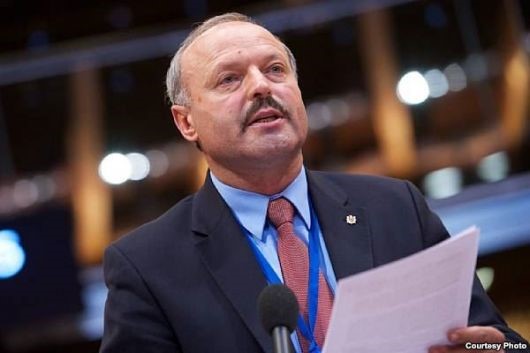
Sunday, February 19, 2017
Report on Negative Impact of Oversexualisation of Children
A few days ago, the Committee of Ministers of the Council of Europe (CoE) (which is the statutory decision making body of the CoE), endorsed a report of its Parliamentary Assembly (PACE) on the oversexualisation of children. It also encouraged its Member States to take concrete steps in protecting children. The rapporteur for this report was ECPM Member Valeriu Ghiletchi (MP, Moldova).
His report highlighted the negative consequences of the oversexualisation and objectification of children by the media, marketing campaigns as well as television programmes. Additionally, the recommendations submitted to the Committee of Ministers called for the inclusion of the issue of the oversexualisation of children in their "Council of Europe Strategy for the Rights of the Child" (2016-2021). Moreover, it invites the relevant Council of Europe Committees to take more action. We strongly welcome the endorsement of this report from the Council of Ministers. Now, their recommendations should be actively implemented.
The adopted resolution underlines that "Mass media, marketing campaigns, television programmes and everyday products regularly oversexualise children, particularly girls, by conveying images which portray women, men and in some cases even children, as sexual objects". As the accompanying explanatory memorandum explains, these images are imposed on children before they are capable of of naturally developing and understanding their sexual behaviour - thus hampering their sexual and psychological development.
The most visible expression of the oversexualization of children is the common nowadays phenomenon of presenting sexually provocative images of children dressed as grown ups in tv shows, advertisements etc. Behind this overexposure of children lies the pervasive idea that "sex sells" and it is an effective way to make people receptive to commercial and other messages. Young boys and girls are a very important target group for the promotion of fashion, beauty and life style products. Although children are usually financially supported by their parents, their potential as consumers is significant. Being in their formative years, they have dreams and aspirations for the future and they are inspired by the different public figures and celebrities. The marketing, entertainment and mass media industries take advantage of their need for role models to look up to, so that they can gain more.
As children receive these messages (usually in a subconscious manner), they feel the need to comply with the norms sent by the media. When they fail to do so, their self esteem is lowered. This exposure to a distorted view on sexuality is also a contributing factor to their earlier engagement to sexual activities. Many children nowadays exchange explicit sexual images and are engaged in activities like sexting from a very young age. As a result, they tend to see sex as a prerequisite rather than a consequence of an intimate relationship between mature adults.
Therefore, the adopted resolution urged CoE Member States to a) compile scientific evidence and study in depth the effects of the oversexualization of children, b) take legislative action towards limiting the inappropriate sexualised depiction of children in the media and advertising sectors and c) adopt policies that seek to inform, educate and remind parents of the dangers their children face. It also called for the introduction of education programmes that inform children and help them develop their sexuality in a natural manner. These programmes should support the education children receive from their families and highlight the dangers they have to face in an oversexualised society.
There were also specific recommendations to the Committee of Ministers of the Council of Europe by the PACE. They Committee was urged to address the issue within the framework of the new Council of Europe Strategy for the Rights of the Child (2016-2021) and within the work programmes of other relevant Council of Europe bodies. It called for the Committee of Ministers to invite the new Ad hoc Committee for the Rights of the Child (CAHENF) (it is the Committee that oversees the implementation of the above-mentioned strategy) to "devide a specific activity aimed at fighting the over-sexualisation of children". Additionally. It also called for the Gender Equality Commission (GEC) of CoE to "draw up new standards specifically aimed at fighting the oversexualisation of children" and asked the Steering Committee on Media and Information Society (CDMSI) to put stronger emphasis on children protection in the context of its Internet users related activities.
The Committee of Ministers endorsed the report and encouraged Member States to develop policies that will "enable them to acquire a critical view of media representations of gender and to decode sexist stereotypes". It also calls CAHENF to take into account the recommendations made in the resolution and to "examine the possibility" of developing a specific activity to fight the over-sexualisation of children. It also calls the other two commitees to take into account these recommendations in their work.
Now, it is up to these three Council of Europe bodies to actively implement the recommendations and give emphasis to the protection of children from the effects of negative stereotypes.